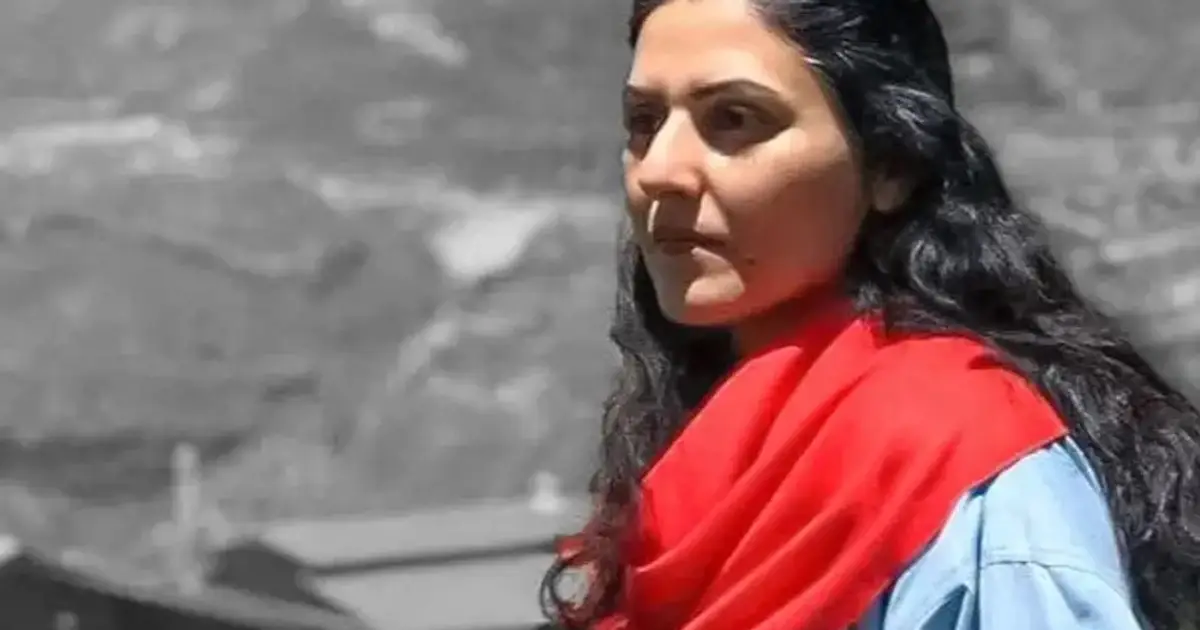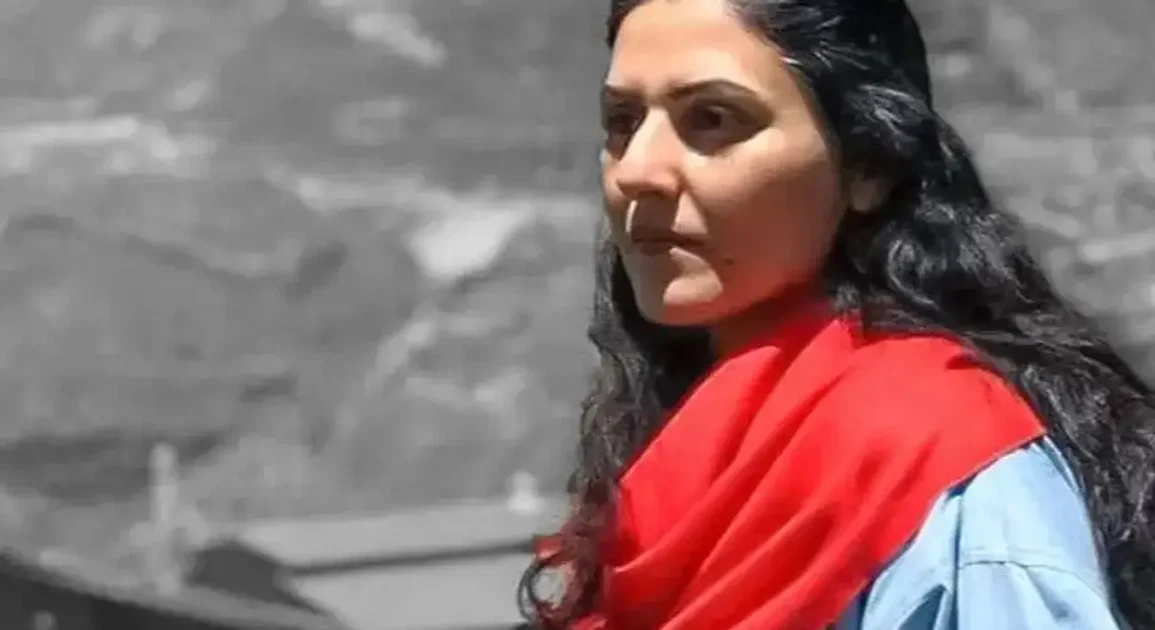
Golrokh Iraee, a political prisoner currently held in Tehran’s Evin Prison, has expressed her strong disapproval of the ‘reformists’ participating in the upcoming June 28 presidential elections.
In a letter from prison on Sunday, she stated: “The reformists should know that we, the people of Iran, remember their betrayal from the first day and we will not forget it.”
In her letter, Iraee condemned the ‘reformists’, accusing them of working to “destroy youth and future generations.”
Iraee’s letter is a vehement critique of the political faction within the Islamic Republic’s system known as ‘reformists’, accusing them of betraying the Iranian people and recalling the brutal history of political repression and violence in the country.
Iran’s ‘reformists’ emerged in the 1990’s advocating for social and political freedoms and the rule of law. However, from the early 2000s, hardliners loyal to Supreme Leader Ali Khamenei reacted by systematically curbing their influence. The election of populist neo-conservative Mahmood Ahmadinejad in 2005 further marginalized ‘reformists’ from critical government positions.
During the 2009 presidential election, ‘reformists’ rallied behind their candidate, Mir Hossein Mousavi, who controversially lost to Ahmadinejad. This sparked widespread protests against Ahmadinejad’s re-election, met with harsh repression including hundreds of arrests and intimidation. Many opponents of the Islamic Republic argue that the clerical system of government, has been beyond reform all along and that the reformists gave false hope to the people that religious dictatorship can be improved and reformed to address Iran’s pressing issues.
Iraee’s letter begins by detailing the harrowing history of cultural purges, the expulsion of students and professors, and the systemic use of torture and forced confessions in prisons during that era. She condemned the reformists for their complicity and inaction during these times, as well as their role in the chain murders.
“We will not forget the cultural revolution and the expulsion and house arrest of students and professors, the elevation of ignorance over merit, the killings, torture, rape, forced confessions, and coercing political prisoners to execute their friends in the prisons of the 1980s.”
In her statement, Iraee highlighted the mass executions of political prisoners in the 1980s, a period marked by severe human rights abuses. “We will not forget the consolidation of power of the Islamic Republic and the catastrophic killing of young people in the 1980s; in the days when you Hezbollites and followers of the Imam’s line were at the head of affairs,” she wrote.
“When nearly a thousand people were slaughtered in the chain murders within a few years, you became mere logistical support to avoid accountability,” Iraee stated.
Turning to the repression of protestors, Iraee accused the reformists of abandoning the people during the 2009 Green Movement protests and the bloody crackdown on demonstrators in 2019.
“In Ashura 2009, when the protests escalated beyond your controlled narratives and crossed the boundaries of your slogans, you abandoned the people who had come to the streets due to the atmosphere you created and your claims of lost votes, leaving them to be killed, sentenced to execution, and tortured in prisons,” she charged.
Iraee criticized the reformists for their repeated failures to stand by the people, instead using them as pawns in their political games. “We, the people on the streets, were always your extras to pressure from below while you negotiated from above to re-enter the power game,” she wrote. She continued, “When people came to the streets in 2017 with the slogan ‘Reformist, Hardliner, The Game Is Over,’ you, as usual, changed your skin and color.”
She lambasted the ‘reformists’ for their role in perpetuating economic hardships and social inequalities, accusing them of exploiting the working class and ignoring their struggles. “You are the continuators of Mohammad Khatami’s policies and Akbar Hashemi Rafsanjani’s economic policies; symbols of exploitation of the lower class. How dare you speak of the lower class and their struggles when you have reached your positions by feeding off their diminishing resources,” Iraee asserted.
In a particularly vivid passage, Iraee declared, “We have passed beyond reform. You continue to recycle the promises of Mohammad Khatami, who in 2019, after the massacre of protesters, called us destructive waves and thanked the Supreme authorities. Now you have returned to once again destroy the youth of future generations just as you did to us. With the people who have not only passed through Khatami but also set fire to the shroud of reforms. Put on the uniform of fundamentalists and shoot from the front.”
Iraee’s letter underscores a deep sense of betrayal felt by many Iranians towards the reformists, accusing them of failing to deliver on promises of civil rights and social justice, highlighting their role in sustaining the oppressive regime.
“You have always spread despair in society, and your existence has been an opportunity for the regime’s survival,” Iraee added.
Iraee further criticized ‘reformists’ for standing alongside someone who says, ‘We won’t introduce new policies because Khamenei sets the general directives.'”
She was referencing Masoud Pezeshkian, the sole approved ‘reformist’ candidate who in his first interview following his approval from the Guardian Council to run for presidency stressed that his government would not introduce any new economic strategies and policies.
“The people of Iran will not forget your loyalty to the Islamic Republic. The day the people on the streets settle accounts with the Islamic Republic, they will also deal with you, the regime’s enablers,” Iraee warned. She concluded with a vision of accountability: “When the people of Iran decide the fate of the Islamic Republic on the streets, they will also settle accounts with you, the opportunists and apologists whose names are etched in infamy on the political history of Iran.”
Iraee’s letter is a testament to the ongoing struggle for justice and accountability in Iran, reflecting the deep-seated grievances of a populace long subjected to political repression and betrayal. Her statement reflects a deep mistrust and resentment towards the Islamic Republic, including the reformist faction.
This post was originally published on this site be sure to check out more of their content.







